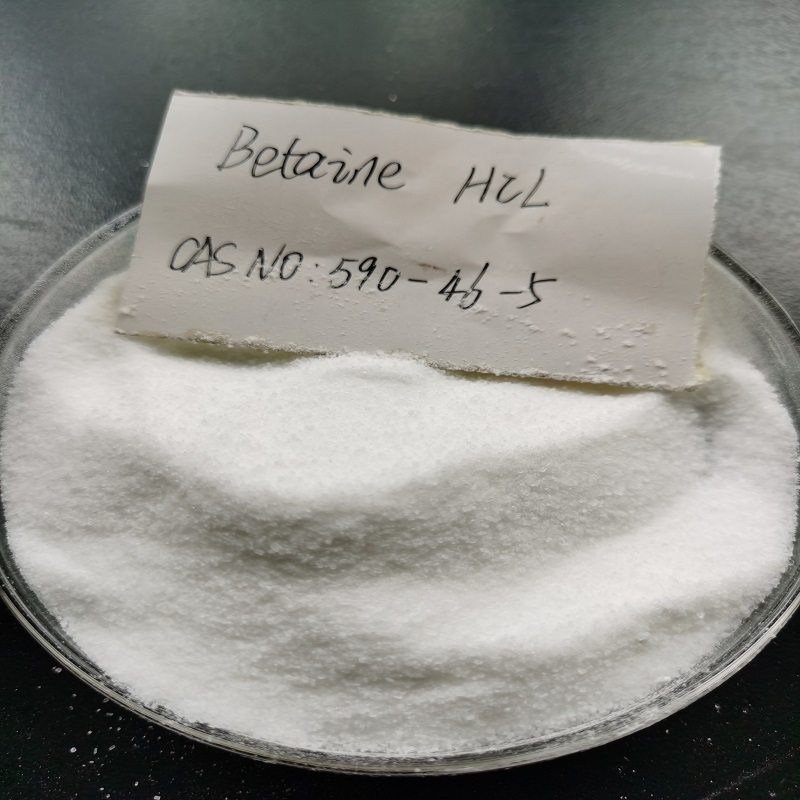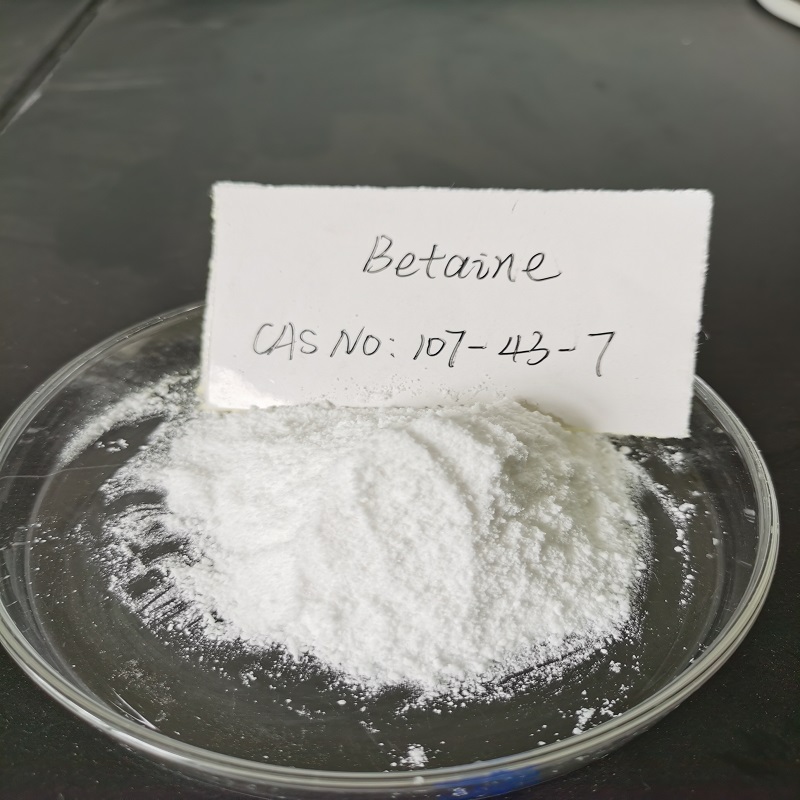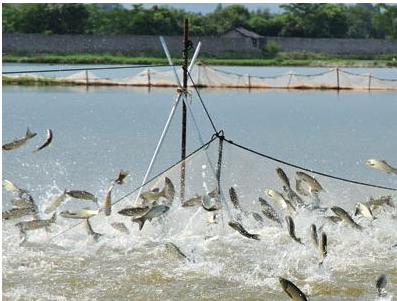Betaine is an important functional additive in aquaculture, widely used in the feed of aquatic animals such as fish and shrimp due to its unique chemical properties and physiological functions.
Betaine has multiple functions in aquaculture, mainly including:
Attracting food
Promoting growth
Improving feed utilization
Enhancing immunity.
1. Feeding attraction
- Enhances feeding desire:
Betaine has a sweet and fresh taste similar to amino acids, which can effectively stimulate the sense of smell and taste of aquatic animals, significantly improve the palatability of feed, and promote food intake.
- Shortening feeding time:
Especially during the juvenile stage or environmental stress (such as high temperature, low dissolved oxygen), betaine can help animals adapt to feed faster.
2. Promote growth
- Improve feed utilization:
Betaine promotes the secretion of digestive enzymes, enhances the digestion and absorption of nutrients such as protein and fat, and accelerates growth.
- Protein conservation:
As a methyl donor, betaine participates in metabolism in the body, reducing the consumption of essential amino acids (such as methionine) and indirectly lowering feed costs.
3. Regulating osmotic
- Pressure to resist salt stress:
Betaine can help fish and shrimp maintain cell osmotic pressure balance in high or low salt environments, reduce energy consumption for osmotic regulation, and improve survival rates.
- Relieve environmental stress:
Betaine can enhance animal tolerance under stress conditions such as sudden temperature changes and deterioration of water quality.
4. Improve body health
- Protect the liver:
Betaine promotes fat metabolism, reduces liver fat deposition, and prevents nutritional diseases such as fatty liver.
- Enhance intestinal function:
Maintain the integrity of intestinal mucosa, promote the growth of beneficial bacteria, and reduce the risk of intestinal inflammation.
5. Antioxidant and stress resistant
- Free radical scavenging:
Betaine has a certain antioxidant capacity and can alleviate the damage of oxidative stress to cells.
- Reduce stress response:
Adding betaine during transportation, pooling, or disease occurrence can reduce growth arrest or death in animals caused by stress.
6. Improve immunity
- Enhance immune indicators:
Studies have shown that betaine can increase the activity of lysozyme and immunoglobulin levels in the blood of fish and shrimp, enhancing their resistance to pathogens.
Betaine can enhance the immunity of aquatic animals and alleviate stress reactions.
Adding betaine to aquatic feed can effectively resist the effects of sudden temperature and water quality changes on aquatic animals, improve their immune and stress response abilities
For example, adding betaine can significantly improve the survival rate of eels and the activity of proteases, amylases, and lipases in the liver and pancreas
7. Replacing some antibiotics
- Green and safe:
Betaine, as a natural compound, has no residue problem and can partially replace antibiotics for growth promotion and disease prevention, which is in line with the trend of ecological aquaculture.
- Application suggestion:
Addition dosage: usually 0.1% -0.5% of the feed, adjusted according to the breeding variety, growth stage, and environmental conditions.
- Compatibility:
When used in conjunction with choline, vitamins, etc., it can enhance the effect.
Summary:
Betaine has become an important additive for improving the efficiency of aquaculture through multiple effects such as food attraction, growth promotion, and stress resistance.
Especially in the context of intensive aquaculture and increasing environmental requirements, its application prospects are broad.
Post time: Apr-17-2025








